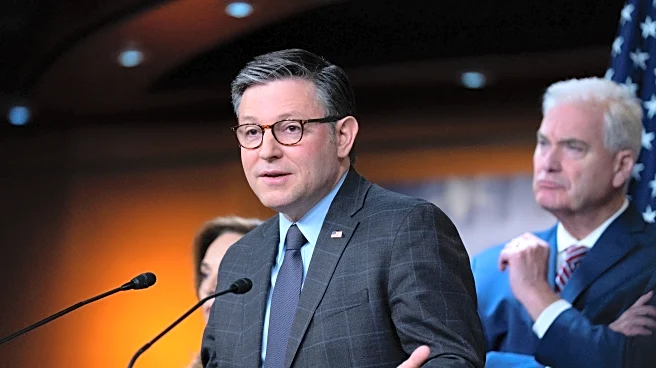What's Happening?
U.S. Supreme Court Justice Brett Kavanaugh raised concerns about the potential for U.S. military actions to be scrutinized in court during oral arguments in the case of Hencely vs. Fluor Corporation. The
case involves former U.S. Army Specialist Winston T. Hencely, who sued the government contractor Fluor after being critically injured by a suicide bomber at Bagram Airfield in Afghanistan in 2016. The attack resulted in five deaths and 17 injuries during a Veterans Day event. Hencely's attorneys argue that the bomber was employed by Fluor's subcontractor, while Fluor contends that allowing the lawsuit to proceed could undermine federal interests and the government's authority over war activities.
Why It's Important?
The case highlights the legal complexities surrounding the immunity of government contractors under the Federal Tort Claims Act (FTCA). While the federal government is protected from lawsuits through the combatant-activity exception, it is unclear if this immunity extends to contractors. The Supreme Court's decision could set a precedent affecting the liability of contractors involved in military operations, potentially impacting federal interests and the conduct of war activities. The outcome may influence how contractors are held accountable for their actions in conflict zones, affecting military operations and contractor responsibilities.
What's Next?
The Supreme Court's decision in the Hencely case is expected early next year, which will determine whether the lawsuit against Fluor can proceed. This decision will also affect related lawsuits filed by family members of those killed and injured in the attack, which are currently on hold. The ruling could prompt legislative action to clarify the scope of contractor immunity in military contexts, as suggested by Justice Neil Gorsuch during the proceedings.
Beyond the Headlines
The case raises ethical questions about the responsibilities of military contractors and their adherence to military protocols. It also underscores the challenges in balancing national security interests with accountability for actions taken in conflict zones. The decision could lead to broader discussions on the role of contractors in military operations and their integration into federal legal frameworks.











